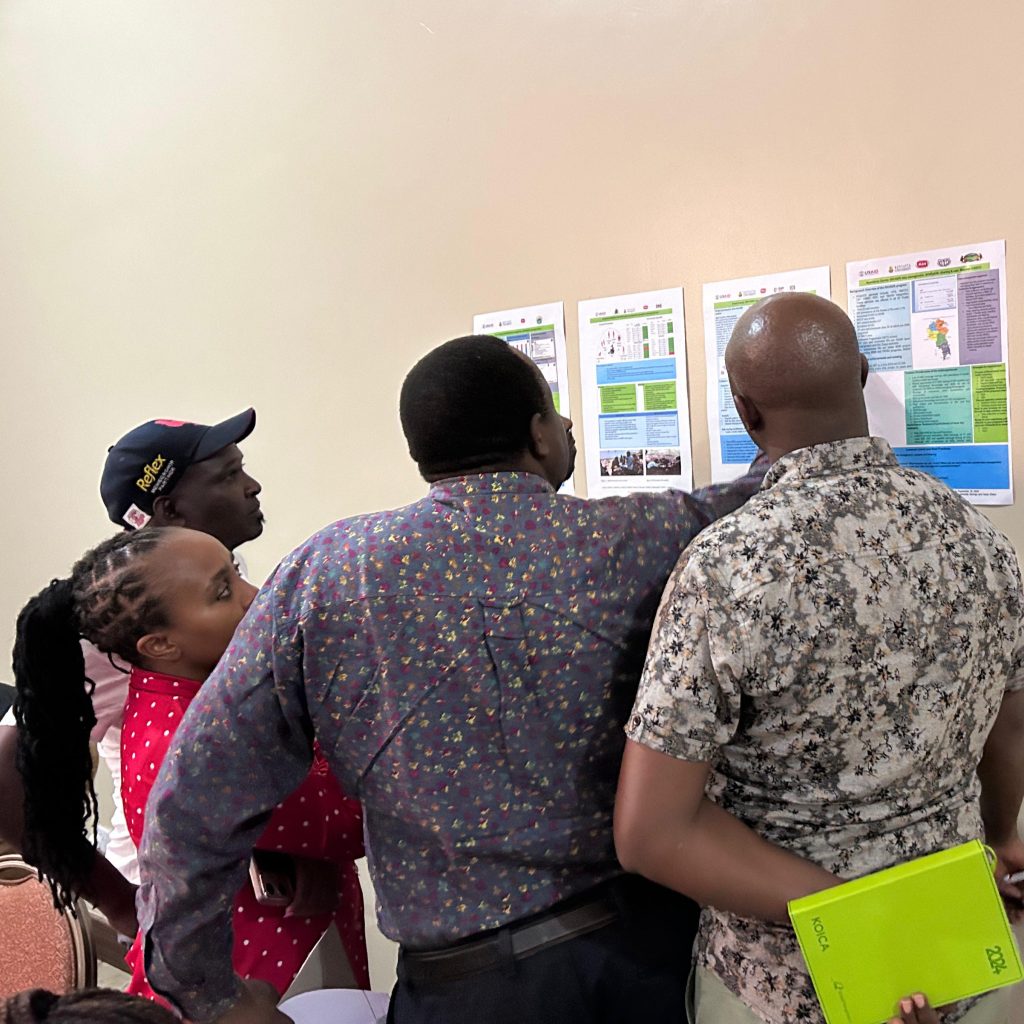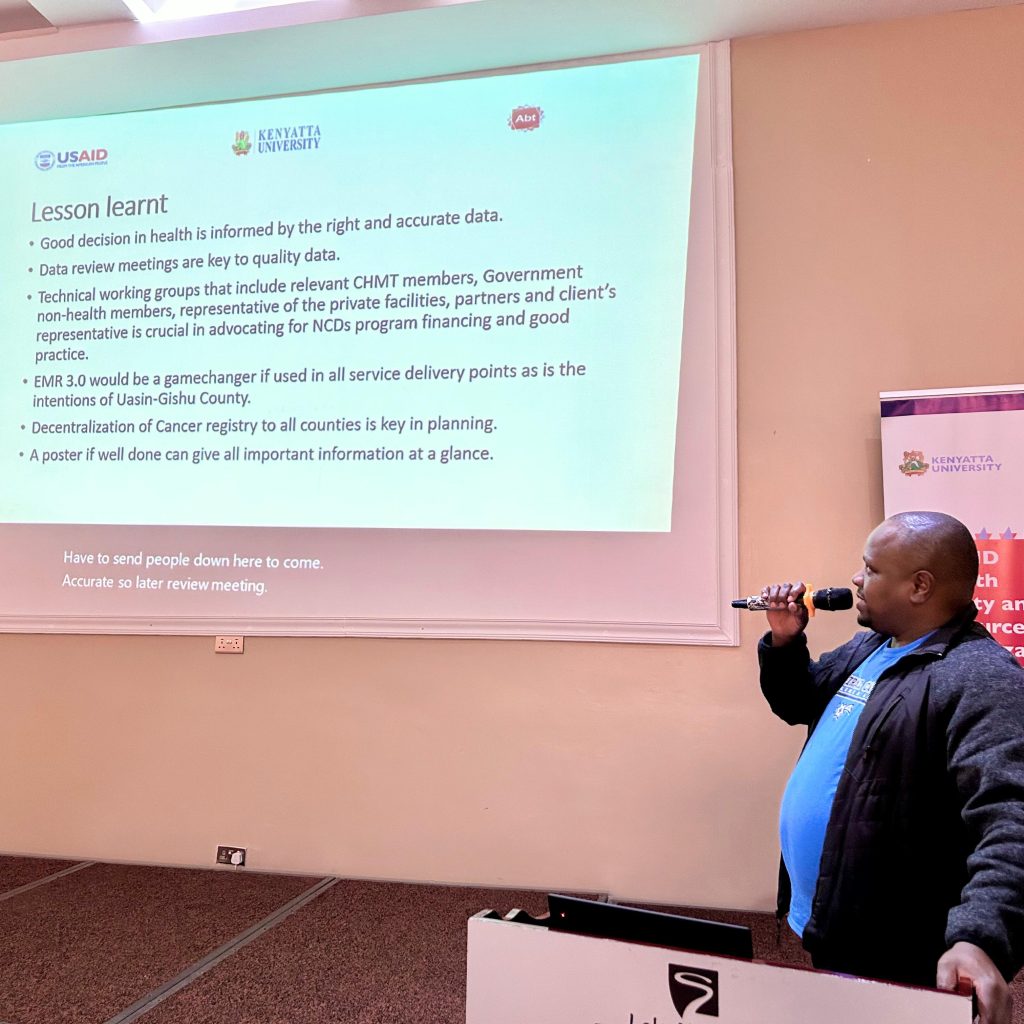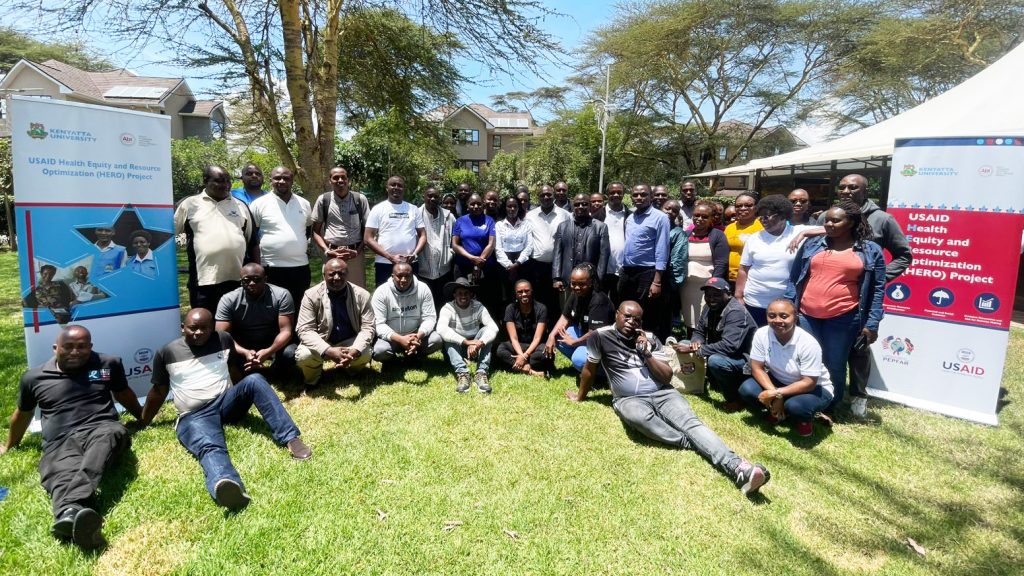
County governments are active players in the delivery of quality healthcare. As they do this, improved data practices is an important driver to quality service delivery and improved performance. Through public participation, county governments identify health priorities and execute health programme budgets. County governments implement different health programmes, of which each programme generates data which is useful for decision making, guiding how available health resources can be optimally utilized.
USAID Health Equity and Resource Optimization (USAID HERO) works to strengthen health systems across 10 counties. The project provides technical assistance to improve domestic resource mobilization, strengthen financial and social protection systems for health and promote use of quality evidence for decision making using an inclusive, equitable and gender transformative approach.
The development of a data analytics dashboard for Kenya’s health sector is one of the focus areas for USAID HERO. Development of this dashboard, needs input from a number of stakeholders-especially those working and leading programmes at the counties. Recently, the project convened a 5-days data analytics workshop with participants from the ten focus counties.
The workshop brought together county health program coordinators in charge of HIV/AIDS, TB, Malaria, RMNCAH, Nutrition, NCDs and GBV program. Other USAID implementing partners responsible for these program areas were also present. A critical first step was conducting problem identification of the challenges each of their programmatic area encountered in achieving the targets set in the County CIDPs, Annual Development plans, Annual Work Plans, and related reports.
For example, on nutrition data, maternal infant and young child nutrition as a sub- program area, participants identified that poor infant and young child feeding practices as the problem and went ahead and stated that household food insecurity, poor health seeking behavior and lack of nutrition budget line for training as the causes of the problem.
A spotlight on the Malaria programme; in the case management as a sub- programme area the participants identified that lack of testing and lack of treatment of 100% of all suspected and confirmed malaria cases as the problem. In Kenya the percentage testing of Malaria in last financial year was 87.09%: In Meru 55.06% and Taita Taveta 74.75 %(KHIS), on treatment, Taita Taveta treated 87.9% and Meru 68.8% of the confirmed Malaria Cases with 1st line Antimalarial.


Consequently, the various program areas identified key programmatic indicators linked to the problems identified that require tracking and follow-up, along with additional indicators, particularly those related to HSS and social determinants of health, that influence these programmatic measures. There after they reviewed the indicators, prioritized them and defined how they would like the data presented in the integrated dashboard.
Cross-learning on best practices on data analytics and use
The counties present had an opportunity to share best practices on how they manage their data, conduct data analytics and how they use data for decision making. This was done through a conference that used a gallery walk approach where by each programme area in each County had prepared a poster presentation showcasing their best practices and analysis on the performance of their program areas.
Data Analytics capacity building baseline assessment
Drawing from the needs identified and the indicator prioritization as well as best practices on data analytics and use shared, the participants present each identified gaps in their data analytics capacity. They were evaluated on their ability to collect, analyze, interpret, manage, and use data, as well as their capacity to incorporate data quality improvement into their service delivery programs. The assessment also examined their data analytics skills in four areas: Descriptive (what happened), Diagnostic (why it happened), Predictive (what will happen), and Prescriptive (how to make it happen) capabilities within their program data.
Capacity building plan development
Based on the gaps identified, the county teams prioritized the gaps, determining which ones should be addressed in the immediate future, which for the mid-term, and those to be tackled in the long term. The workshop participants in collaboration with USAID HERO hence developed a data analytics capacity building plan. Several modules were developed that will be used to train not only the county teams present in the workshop but also other members of the department of health and implementing partners that are interested in developing their data analytics skills.
The modules developed include; Basic Excel, Advanced Excel, Basic & Advanced Power Bi, Preparation of data analytic reports, Performing DQAs and Data presentation. Training for these modules will begin in the next quarter, starting in October 2024, and continue throughout the year until September 2025. Additional modules, scheduled for later, will cover topics such as data modeling using Python and Nvivo, as well as big data analytics and advanced statistical techniques in AI and Python.
Data related challenges facing counties
Some of the challenges listed across all the 10 USAID HERO supported counties include: inadequate reporting tools, inadequate technical capacity to collect accurate data, inadequate budgetary allocation to conduct surveys, suboptimal digitization of services, restricted access to Kenya Health Information System(KHIS), inadequate data analysis skills and few data sharing forums within the county for informed decision making.
USAID HERO will actualize the capacity building plan targeting to address these challenges, additionally the development of the data analytics dashboard will continue and stakeholders input will be included at different stages until it is launched for use in collaboration with the national Ministry of Health.

Contributors:
USAID HERO Communications Team: Meshack Acholla, Communications Specialist & Ali Ndaikwa (intern)
USAID HERO M&E Team: Lynda Kaloki, Michael Songol, Brian Kalii and Charles Maina
